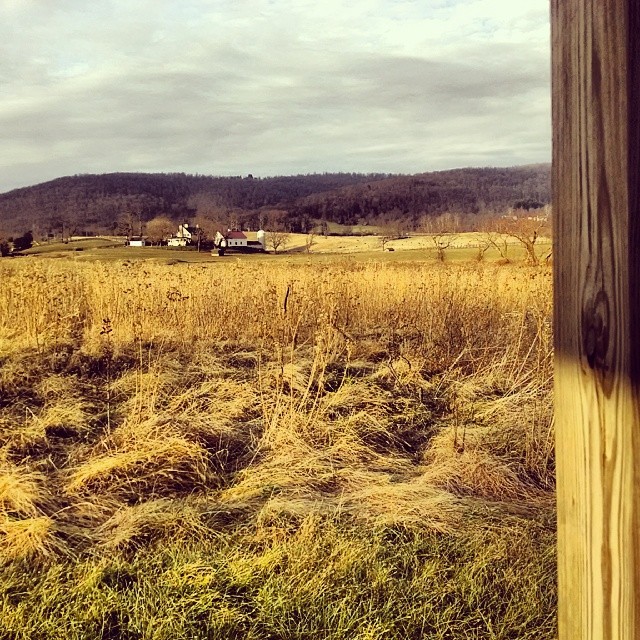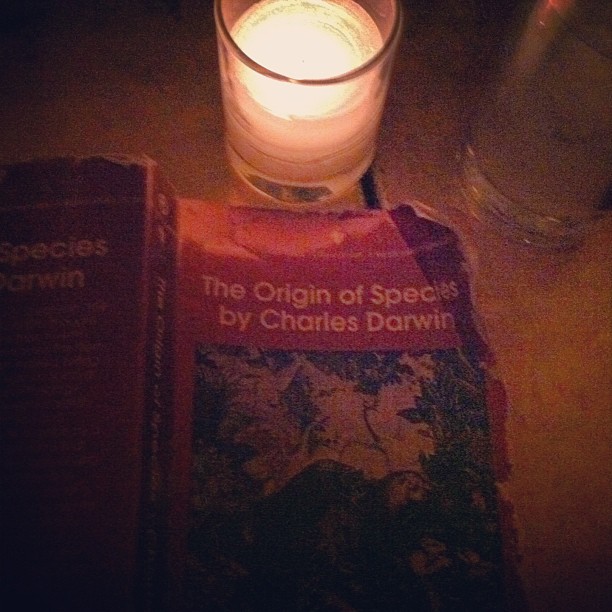Sometimes a piece of writing so closely describes the truth, that it itself becomes the truth. Charles Darwin's "On the Origin of Species," first published in 1859, made its argument so thoroughly, so absolutely, it literally willed evolution into being in the human consciousness.
Once in plain sight, evolution made its own case, of course. But today the writing that first fully described evolution is anything but an emptied vessel.
Darwin piles on example after example variation, drawing from Chinese encyclopedias, farmers and cattlemen, hobbyist animal breeders, gardeners, the Bible, even deriving them first-hand by breeding pigeons and studying the survival of weeds in a small field. He was a species geek, and could wallow happily on some arcane variation of an ant, bee or flower.
The book crystallizes not one but two major drivers of evolution: natural selection and community of descent. Natural selection is the shaping of traits from an expanding population competing for fixed resources. The second idea, groomed by the natural selection, is that all living beings can be traced back to a single entity.
Driving the rolling roads of Virginia, I've often daydreamed of a hard-bitten farmer two centuries back sitting at a heavy oak kitchen table on a winter nights to read this English Nat'rlist's recently published account of how his own livestock changed over time.
Despite its lofty ambition, "Origin" has almost no technical jargon whatsoever. Darwin writes to make his case for this farmer. And for everyone. “This whole volume is one long argument,” he wrote. “Origin” is technical writing at its finest, clearly explaining a concept so subtle and so vast that it literally took the human race about 200,000 years to grok, and yet the writing is so clear that it assumes no specialized knowledge on the part from the reader, apart from basic fluency in the English language and some patience to consider Darwin's enthusiastic piling on of example after example.
Infinite Growth, Limited Food
We know species can vary over time: humans have been breeding animals for profit and pleasure since the dawn of civilization. We also know that any species, left to its own will, can repopulate at a rate of geometric growth, until they consume all available resources. All species could reproduce faster than their members die off. The only thing keeping them in check is the limited number of resources.

With only a limited number of resources then, it is those variants of a species that are most successfully suited to extracting resources for survival that survive — and are around to breed the most.
This is the idea of Darwin's basic idea: Geometric increase of species + limited resources + variation = natural selection.
Natural selection takes place not only within species traits, but also across different species competing for the same resources. Those better at obtaining resources through new genetic traits, will, through time, overpower others.
And there is a compound effect: The greater the diversity within the species, the more likely that species will be able to adapt those traits that make it better compete for resources. Species that are most numerous will have the best chance of producing favorable variation. Those less able to compete become rarer, and, over time, go extinct. "Rarity is the precursor to extinction," Darwin wrote.
Natural selection is ruthlessly efficient. "Natural selection is continually trying to economize in every part of the organism," Darwin tells us. Any diminution of a trait that does not hinder the survival of the species will quickly be seized upon and capitalized.
Critics
To this day, the idea of natural selection has generated a fair amount of skepticism, much of which Darwin anticipated.
Chief criticism is missing evidence: If natural selection modified all the species why don't we see more evidence of these earlier, or transitional, variations in the fossil record? He did admit that the geological record is spotty. "The crust of the earth is a vast museum; but the natural collections have been imperfectly made, and only at long intervals of time," he wrote.
We do not have a record of transitional species, as they do not live for long, after the favorable variation of the species takes hold, and quickly comes to dominate.

At least some of the gaps in the records can be attributed to the uneven ways at which the fossil record of evolution was recorded. Land rising from the sea will leave a great fossil variety; subsiding, breaking into the sea, it will leave little. Where sediment under the sea did not accumulate quickly enough to protect bodies from decay, no remains can be found.
During periods of subsidence, there will be much extinction of life. During the periods of elevation, much variation. Our notions of time do not take in the expanse of such cycles. “We do not make due allowance for the enormous intervals of time which have probably elapsed between our consecutive formations,” Darwin wrote.
Such vast expanses of time will be needed to support Origin’s other major assertion: that we, animals and plants alike, are all derived from a single creature. Variation, over time, created new species, and sub-groups of species, and on and on, each unique to some environmental factor yet all maintaining some basic fundamentals.
“What can be more curious than that a hand of a man, formed for grasping, that of a mole for digging, the leg of the horse, the paddle of the porpoise, and the wing of the bar, should all be constructed on the same pattern,” Darwin writes.
“All the organic beings which have ever lived on this earth, have descended from some one primordial form, into which life was first breathed.”
All true classification is genealogical, a tracing back through countless variants to that single first living being.
“All past and present organic beings constitute one grand natural system, with groups subordinate to group,” Darwin writes “The affinities of all organic beings are due to inheritance or community of descent. The natural system is a genealogical arrangement.”
Finally, Darwin notes that appeals to the “the Plan of the Creator,” where someone “rejects the vera causa of ordinary generation with subsequent migration and calls in the agency of a miracle,” add nothing to our knowledge.
“Do they really believe that, at innumerable periods in the earth’s history, certain elemental atoms have been commanded suddenly to flash into living tissue?”
More Quotes From The Book Here...
